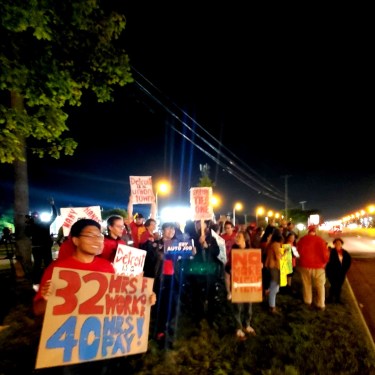WeWork Sends Cease and Desist Letter to Rival Codi Over Marketing Campaign
In a move that could be seen as an escalation of the growing competition between co-working space providers, WeWork has sent a cease and desist letter to rival startup Codi. The letter, dated October 13, was viewed by TechCrunch and cites "unauthorized use and misappropriation of WeWork’s intellectual property, false advertising, and Tortious interference with WeWork’s contractual relations with its member companies."
Background
WeWork has faced significant challenges in recent years, including a model that involves committing to buying or signing long-term leases in buildings and then not having enough demand from people or businesses to lease or sublease its space. The COVID-19 pandemic further exacerbated the issue, leading to substantial financial losses for the company.
In August, WeWork announced a net loss of $397 million for the second quarter on revenue of $877 million. The company’s stock price has also plummeted, trading at just $2.22 as of Tuesday afternoon, down significantly from its 52-week high of $130.80 and its peak in 2021.
In response to these challenges, WeWork has been trying to revamp its business strategy. In May, former CEO Sandeep Mathrani resigned, and David Tolley, a former Blackstone executive, took over as interim CEO. On Monday, it was announced that Tolley would be taking on the role of permanent CEO.
Codi’s "WeWon’t" Campaign
Meanwhile, Codi has been making waves with its marketing campaign, dubbed "WeWon’t." The campaign involves setting up booths outside WeWork offices in New York and San Francisco, informing companies that their space might be shutting down and offering them discounted office space with Codi.
The campaign appears to be targeting existing WeWork customers, and some have taken issue with the tactics used by Codi. However, others see it as a clever move to gain traction in the competitive co-working space market.
WeWork’s Cease and Desist Letter
In its letter to Codi, WeWork alleges that the "WeWon’t" campaign constitutes unauthorized use of its intellectual property and interference with its contractual relations. The company also claims that Codi is making false advertising statements about WeWork’s business practices.
The letter demands that Codi cease all activities related to the "WeWon’t" campaign and refrain from any further attempts to interfere with WeWork’s business.
Reactions
When reached for comment, a spokesperson for Codi stated that the company was not aware of the cease and desist letter and would review it before making any decisions. A representative for WeWork declined to comment on the matter.
The move by WeWork raises questions about the future of competition in the co-working space market. As companies continue to battle for market share, will we see more aggressive tactics like this emerge?




